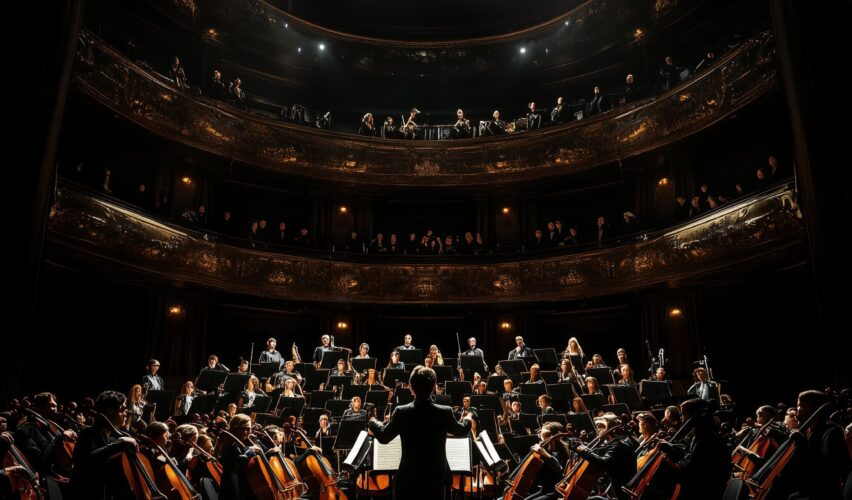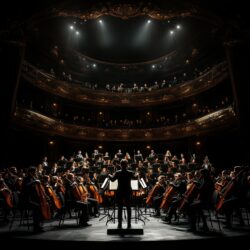Attending a classical concert for the first time can feel both exciting and slightly overwhelming. With an abundance of options—symphonies, solo recitals, chamber music, opera—it’s easy to feel unsure where to begin. However, choosing the right concert for your first experience can set the tone for a lifelong appreciation of classical music. Whether you’re a complete newcomer or someone simply curious about the genre, here’s a practical and inspiring guide to help you select the ideal performance for your classical debut.
Understand the Different Types of Classical Concerts
Before picking a concert, it’s helpful to understand the main types of classical performances:
- Symphony Orchestra Concerts feature full orchestras playing large-scale works by composers like Beethoven, Tchaikovsky, or Mahler. These concerts offer a powerful sound and a grand experience.
- Chamber Music Concerts are more intimate. They typically involve small ensembles such as string quartets or piano trios. These concerts highlight interaction and subtlety.
- Solo Recitals involve one or two performers, often pianists, violinists, or singers. They are a great way to hear the clarity and virtuosity of individual musicians.
- Opera Performances combine classical music with dramatic storytelling, costumes, and sets. Operas are thrilling but longer and more involved, so they might be better for your second or third experience unless you’re especially drawn to the artform.
- Choral Concerts include vocal ensembles or full choirs. They can be moving and spiritual, especially when performed in cathedrals or historic venues.
Each of these has its own mood and pacing, and some might appeal to you more than others. Do a little research or listen to short samples online to discover what resonates most with you.
Start with Well-Known Works or Composers
For a first concert, it’s a good idea to choose a program that features music you’ve already heard—or composers whose names you recognize. Composers like Mozart, Beethoven, Vivaldi, Tchaikovsky, and Bach have timeless, accessible works that can be enjoyed by seasoned listeners and newcomers alike.
For example, a concert featuring Vivaldi’s Four Seasons, Beethoven’s Symphony No. 5, or Mozart’s Eine kleine Nachtmusik is more likely to connect immediately with a new audience member. These works are melodic, emotionally engaging, and relatively easy to follow.
Check the Length of the Program
Classical concerts vary in length. Some full-length orchestral concerts run around 90 minutes to two hours, often with an intermission. Others, like afternoon chamber music performances, might be shorter and more casual.
For your first concert, you might want to choose a shorter performance—especially if you’re unsure about your stamina or attention span. Matinee concerts, youth programs, or open rehearsals can be a great introduction.
Look for Themed or “Introduction to Classical Music” Programs
Many orchestras and concert halls offer specially curated programs aimed at newcomers. These may include:
- “Meet the Orchestra” events
- Guided concerts with a narrator or presenter
- Themed programs based on film music, fairy tales, or famous composers
These concerts are usually less formal, often shorter, and come with helpful explanations before or during the performance. They can make your first encounter with classical music more approachable.
Consider the Venue Atmosphere
The setting can greatly influence your enjoyment. A grand concert hall like Carnegie Hall or the Berlin Philharmonie offers a majestic experience. However, small venues, community centers, or even outdoor performances can provide a more relaxed and friendly environment.
Check the dress code, seating arrangements, and whether refreshments are allowed during intermission. Feeling comfortable in your environment will make it easier to relax and focus on the music.
Explore Outdoor or Casual Concerts
Summer festivals often feature outdoor classical concerts in parks or public spaces. These are perfect for first-time listeners because they tend to be less formal and allow you to move around, bring a picnic, or simply enjoy the music in a relaxed setting.
Casual concert series sometimes allow jeans and have a “come as you are” policy. These options break down the barriers that might otherwise intimidate newcomers.
Go with Friends or Family Who Enjoy Classical Music
If you have a friend who’s into classical music, ask them to bring you along to one of their favorite concerts. They can help explain unfamiliar terms, provide background on the pieces, and enhance the experience by sharing their enthusiasm.
Going with someone can also make the event more social and memorable.
Don’t Be Afraid of Not “Getting It” Right Away
One common concern among new concertgoers is the fear of not understanding the music or feeling out of place. Remember: classical music is a deeply personal experience. You don’t need to understand music theory or history to enjoy a performance.
Some pieces may speak to you instantly; others might grow on you with time. Be open to what you feel during the performance—whether it’s calm, excitement, curiosity, or even confusion. That’s part of the journey.
Learn a Bit About the Program Beforehand
Reading the concert program or researching the featured works and composers ahead of time can make the experience more enriching. Many orchestras provide digital or printed guides, playlists, or pre-concert talks.
Knowing what to expect from a certain symphony or learning a bit about the life of the composer can create a deeper connection with the music.
Trust Your Taste and Be Curious
Ultimately, the “right” concert is the one that feels right to you. Trust your instincts. If a piano recital in a candlelit church sounds more appealing than a grand orchestra in a formal hall, go with that. There is no single path to discovering classical music.
Over time, you might find you love the sweeping emotions of Romantic symphonies, the complexity of Baroque counterpoint, or the modern experimentation of 20th-century composers. The beauty of classical music is in its diversity.
Conclusion
Your first classical concert doesn’t need to be perfect—it just needs to be yours. With a little preparation and a touch of curiosity, you’ll find that the world of classical music is welcoming, rich, and endlessly rewarding. Choosing the right concert can open the door to a lifelong love of an art form that continues to inspire, challenge, and uplift listeners around the globe.
Whether you’re listening in a historic theater, a modern concert hall, or a park under the stars, the music will speak for itself.
Happy listening!


